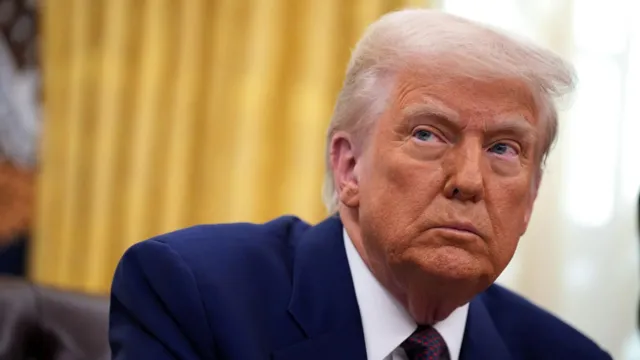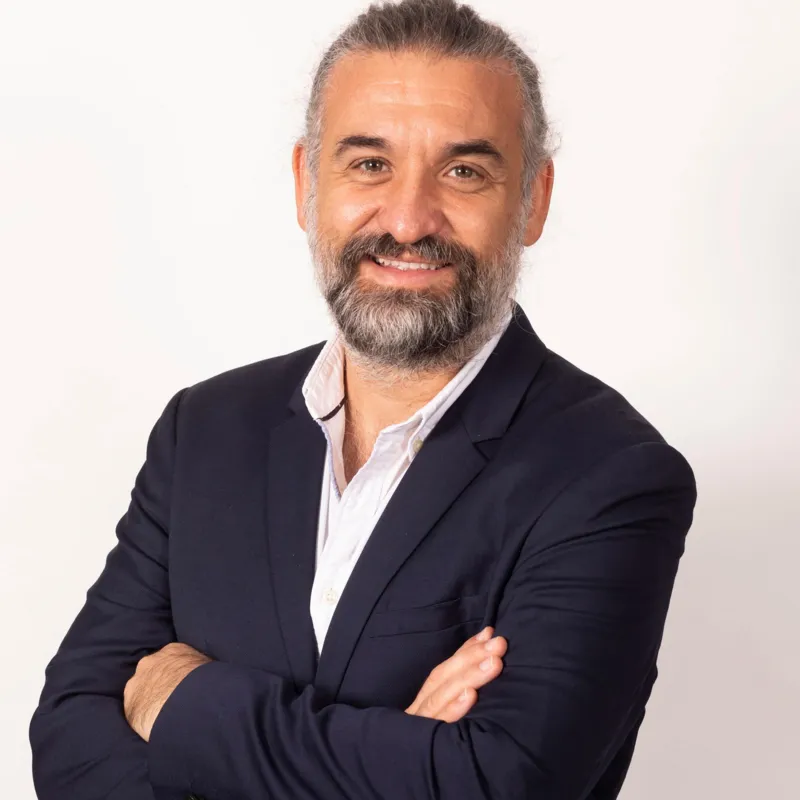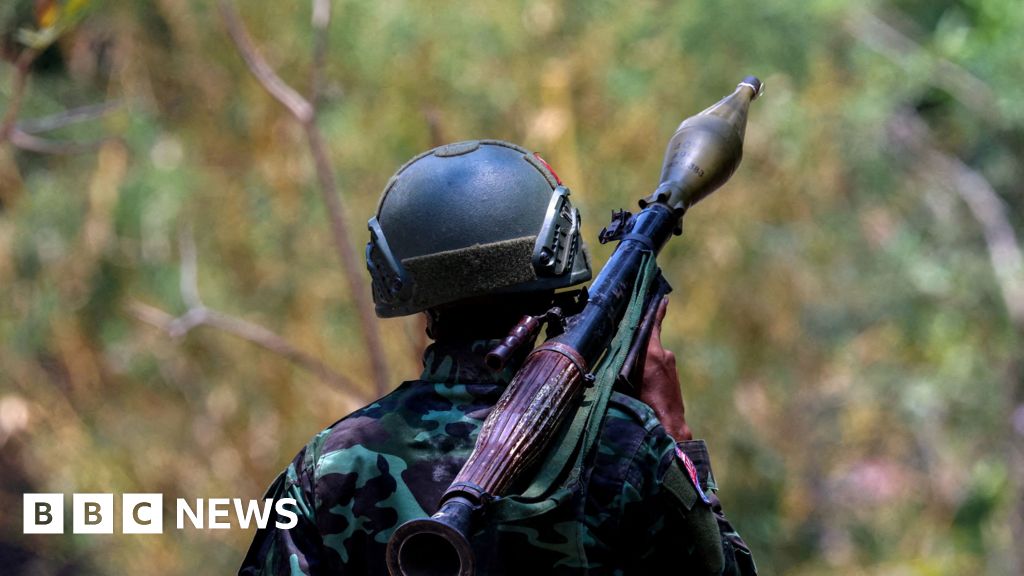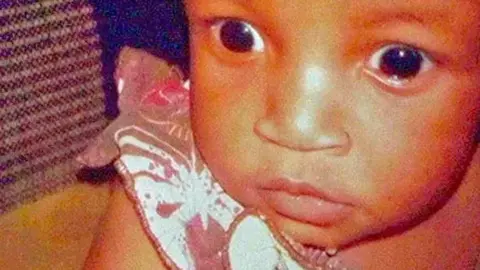 Gladys Kigo / BBC
Gladys Kigo / BBCSeven years after their baby daughter was killed during a brutal midnight operation by police in Kenya at a time of post-election tension, Joseph Oloo Abanja and Lensa Achieng are still raw with emotion as the case against the alleged officers involved has once again been delayed.
“It is a scar that will never fade away,” Ms Achieng, a hotel worker, tells the BBC about the death of six-month-old Samantha Pendo who died with a broken skull and of internal bleeding.
After each postponement or small development, the couple are swamped with calls. Each moment of expectation leads to disappointment in their search for justice.
The family live in the western city of Kisumu – an opposition stronghold where riots broke out in August 2017 amid anger about the results of an election that was eventually re-run because of irregularities.
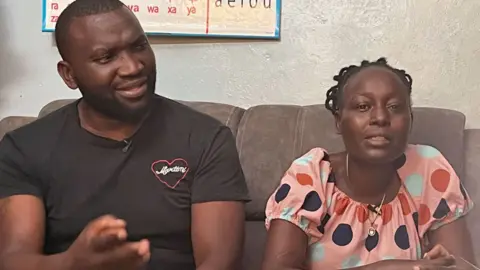 Gladys Kigo / BBC
Gladys Kigo / BBCTheir small home was along a road in the Nyalenda informal settlement that witnessed protests on 11 August where anti-riot police were deployed.
That night the couple locked their wooden door and barricaded it with furniture. At around midnight, they heard their neighbours’ doors being broken down and some of the occupants being beaten.
It was not long before police officers arrived at their door.
“They knocked and kicked it several times [but] I refused to open,” Mr Abanja tells the BBC, adding that he pleaded with them to spare his family of four.
But the battering continued until the officers found a small space through which they threw a tear-gas canister into the one-roomed house, forcing the family out.
Mr Abanja says he was ordered to lie down outside the door and then the beating started.
“They were going for my head so I held my hands up, and they beat my hands until they could not hold any more.”
His wife came out of the house holding Samantha, who was having difficulty breathing because of the tear gas, and was not spared either.
“They went ahead beating me [with clubs] while I was holding my daughter,” Ms Achieng says.
The next thing she felt was her daughter holding her tight “as if she was in pain”.
“I turned her and what was coming outside her mouth? It was foam.”
She shouted that they had killed her daughter and it was at that moment the beatings stopped and Mr Abanja was ordered to administer first aid.
The baby came to but was badly injured.
The couple say officers then swiftly left and neighbours helped them rush Samantha to hospital. She died after three days in intensive care.
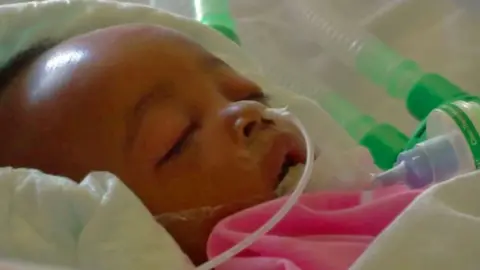
Their quest for justice has been long and frustrating, like that of dozens of others caught up in the post-poll violence.
Twelve police officers have been expected to be charged with murder, rape and torture – but the hearing at which this will happen, when they will be asked to enter a plea, has yet to happen.
One of the victims’ lawyers, Willys Otieno, reckons that the delay is due to a lack of political will to deliver justice to victims of election violence.
Uhuru Kenyatta went on to win the election re-run later in 2017 – the opposition candidate withdrew from the contest. His deputy William Ruto, with whom he later fell out, was victorious in the next vote – taking office in September 2022.
“The state is no longer interested in prosecuting the perpetrators, [and] it is now left to victims’ counsels – those of us who work with non-governmental organisations and human rights groups to put pressure for the charges to be registered and the accused persons to go to trial,” Mr Otieno tells the BBC.
He accuses the current director of public prosecutions (DPP) of “acting like an attorney of the accused”.
“It is not even the accused persons who’ve applied to court for adjournment – it is the DPP who has applied to court to adjourn the plea taking,” the lawyer said about two failed attempts at taking a plea last October and November.
The third attempt was meant to happen two days ago but was postponed due to the transfer of the presiding judge – and has been rescheduled for the end of the month.
The Office of the Director of Public Prosecutions (ODPP) told the BBC it could not handle a request for comment, but posted on X that “the case remains one of the most high-profile in recent history, with Baby Pendo’s death symbolising the tragic outcomes of police brutality during the 2017 post-election unrest”.
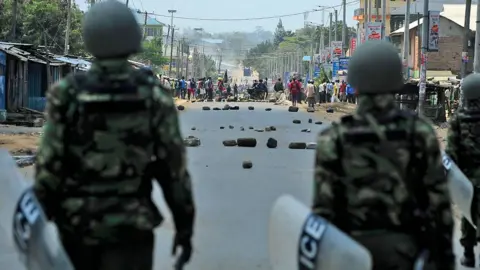 AFP
AFPBut those involved in the case find the delays troubling.
“It was the Office of the DPP that initiated this case, and they were the ones that reached out to us several years ago. They asked us to join a victim support group that was essentially established to make sure that they would have witnesses for their case,” Irungu Houghton, head of the rights group Amnesty International Kenya, tells the BBC.
After initial investigations, the DPP at the time, Nurdin’ Hajji, initiated a public inquest into the death of baby Samantha. The judge found the police culpable.
Subsequently, the public prosecutor ordered further investigations into other cases resulting from the police operation of August 2017, and brought in independent constitutional investigative bodies, civil society and the UN High Commissioner for Human Rights.
The probe uncovered evidence which the DPP said pointed to “the systematic use of violence, including killing, torture, rape and other forms of sexual violence, against civilians, all of which constitute serious human rights violations and crimes against humanity”.
In October 2022, the prosecutor then sought to have the suspects charged, for the first time in Kenya’s history under its International Crimes Act.
Those to be charged include commanders deemed liable because of their responsibility as superior officers – another first for Kenya.
In September 2023 a new DPP took office, Renson M Ingonga, but there has been little movement in the case since.
There appears to be “an unwillingness to try to prosecute this case,” says Mr Houghton.
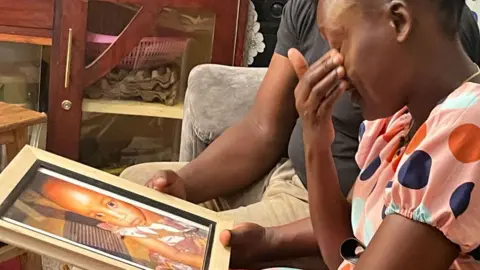 Gladys Kigo / BBC
Gladys Kigo / BBCMr Otieno says the victims’ lawyers may consider seeking justice via a private prosecution or going to the East African Court of Justice or the International Criminal Court (ICC) if the delays continue.
Kisumu governor and opposition leader Peter Anyango’ Nyong’o has now appealed to the chief justice to take up the matter and “find out immediately whether someone or groups of people are sabotaging this case to protect some people”.
If not, he agrees the ICC could be the way to go: “We may be forced to write to the ICC to move in should the local courts continue to delay the cases, because justice delayed is justice denied.”
Samantha’s parents support this idea as without justice they say they cannot heal – each postponement reopens their wounds.
“It doesn’t matter how I’ll do it, but I’ll make sure that I have justice,” says Mr Abanja, who is now 40 and makes a living as a tuk-tuk taxi driver.
“Because they took away something that is so much precious of me – she was everything to me, that little girl I named after my mum.”
You may also be interested in:
 Getty Images/BBC
Getty Images/BBC

